|
Saints Peter and Paul are the co-patrons of our Cathedral in Indianapolis. At times, I’m curious about how two of the most significant apostles feel about sharing a feast day instead of having their own day. We get a glimpse of how these two strong personalities clashed in Galatians 2 as they wholeheartedly strove to work for the Kingdom in the best way they each knew how. Four years ago, I wrote a book from the perspective of a single marriage counselor called Single Truth: You Are More Than Your Relationship Status. In the book, I quoted St. Paul’s 1st letter to the Corinthians: “I should like you to be free of anxieties. An unmarried man is anxious about the things of the Lord, how he may please the Lord. But a married man is anxious about the things of the world, how he may please his wife, and he is divided.” Paul goes on to explain that singleness allows you to adhere to the Lord without distraction. In the Gospel of Mark (1:29-31), we hear of Jesus entering into Peter’s house and “raising” his mother-in-law from a grave illness: “On leaving the synagogue Jesus entered the house of Simon and Andrew with James and John. Simon’s mother-in-law lay sick with a fever. They immediately told him about her. He approached, grasped her hand, and helped her up. Then the fever left her and she waited on them.” Since Peter had a mother-in-law, it is safe to assume he was married. Since this is the only place in Scripture where his marriage is mentioned, it has been a treat to see how The Chosen TV Series has used creative license to imagine what it was like for Peter to juggle full-time ministry with his home life. Honoring Peter and Paul side-by-side reminds us that we are not defined by our relationship status. Whether we are single, married, or consecrated religious, we have a purpose in the Kingdom. Peter could not have fulfilled Paul’s role and Paul could not have fulfilled Peter’s. In each of our own stories, we can think that God will condemn us by our past actions and relationships. The testimonies of Peter and Paul reveal how God chooses us because of our stories – weaknesses and strengths included – not despite them. I have a special fondness for 2 Timothy 4:7 because my college fellowship group was named “Four:7” after this verse: “I am already being poured out like a libation, and the time of my departure is at hand. I have competed well; I have finished the race; I have kept the faith.” I love that this verse was chosen on this feast of Sts. Peter and Paul because in my book I talk about how marriage is an assist and not the goal; our relationship status helps us to pour ourselves out as a gift. The National Catholic Singles Conference highlights Gaudium et Spes 24 because whatever season of life we are in, we “cannot fully find [ourselves] except through a sincere gift of [ourselves].” Whether or not we have a helpmate in holy matrimony, we are not created to be alone and need others to help us fight the good the fight, to finish the race, and to keep the faith. My fellow singles, you are made for community. Please don’t isolate yourself. My dear friends who are couples, you are made for community. Please don’t isolate yourself or think that your marriage is the ultimate goal in life. The Chosen television series depicts a Christ-centered marriage so beautifully in a scene with Simon and his wife Eden. Simon comes home to Eden to tell her that he just met their long-awaited Messiah and was asked to follow Him. She begins to cry and he responds with concern about making her upset. She says, “No, how can I be upset? Come here. This is the man I married… of course He chose you. Someone finally sees in you what I have always seen in you. You’re more than a fisherman. How can I feel abandoned? I feel saved.” Marriage should point us to Jesus, because Jesus is the ultimate goal! So, Peter and Paul, though their earthly vocations were different, they were both called to go on mission for the Lord. You can find a clip from The Chosen television series below. Reflection: In the Gospel today, Jesus asks the question, “who do you say that I am?” I want to turn that question back on you as well. “Who do you say that you are?” Do you define yourself by your relationship status or by Jesus’ love for you?
0 Comments
Holy Week is one of my favorite weeks of the year; each of the days builds with anticipation and I get excited just by the thought of Easter Sunday. Lent is almost through and it’s almost time to be joyful in the Risen Lord. When I was little, I felt this anticipation and excitement too. I would spend Holy Week letting people know that Easter was only a couple short days away—it felt like spring would officially be here as soon as we woke up on Easter Sunday! “The very best holiday of the year” was coming, and I had to get ready for it! Did I fully understand it was Christ that I was waiting for or did I just want to wear my new white shoes for church? Looking back, although it could have been the new Easter shoes, I think my 10 year-old-self would have agreed that I really was waiting for Holy Week as the final stretch to the finish line on a journey that began on Ash Wednesday.
In today’s Gospel reading, we read about moments of betrayal and loyalty. Judas leaves the Last Supper to betray Jesus while Peter in his humanity says that he will never deny him. I find it to be one of the most powerful Gospels of Holy Week. Here’s why: Like Peter, we are called to be disciples whose repentance leads to an experience of God’s forgiveness. Jesus knows that his friends will betray him and that he has limited time left on Earth. On one hand, Judas tries not to be obvious about his deception as he leaves the table, and on the other hand, Peter publicly tells Christ that he will stand by him and never fail him. Ultimately, both men betray Jesus, but it’s Peter who seeks forgiveness and allows himself a second chance. Judas, on the other hand, is overcome with guilt and despairs that his sin is beyond the reach of God’s mercy-- eventually taking his own life. We are like Peter in so many ways! We say we love Christ and that we could never deny him, but at the first sign of pressure we sin and turn our backs on him. How often have we chosen to do something that pulls our hearts from Jesus? It is during Lent—especially during Holy Week—that we recall the pain we’ve caused Christ. This week and each day, Jesus gives us another chance to say to him, “Forgive me; I have sinned.” When Christ meets his disciples after his Resurrection, he asks Peter, “Do you love me?” Let us respond with Peter this Easter, “Yes Lord, you know that I love you!” As Easter approaches, we remember how much we are loved by Christ in his Passion, death on the Cross, and soon to be Resurrection. In these next few days, I challenge you not to say, “Lord I could never deny you!” but instead, “Forgive me Lord, for I have sinned.” Last year on Good Friday, Pope Francis said, “Lord Jesus, always grant us the grace of holy repentance...the spark of hope is lit in the darkness of our despair, because we know that your only measure for loving us is to love us without measure.” This Holy Week, in this time for “holy repentance,” let us make sure to spend these last days in Lent with our hearts preparing for Easter. May we use these remaining days in the desert as a time for forgiveness and allow our hearts to be loved by Christ. May all of our hearts gleam with anticipation for Holy Week and better knowledge of the Risen Lord! On the evening of our wedding, after the ceremony and reception, my husband and I knelt down and washed each other’s feet. It was an act of love and humility that we wanted to be the foundation of our marriage. We had a beautiful example: A King who washed the feet of peasants; a Savior who washed the feet of sinners; a Friend who washed the feet of betrayers. The washing of the disciples’ feet was the act of a dying man. With the last few moments of his precious life, Jesus knelt down. In the last hours with his closest friends, he served. This was the manifestation of the new commandment he was to give moments later at the Last Supper: “Love one another. As I have loved you, so you also should love one another.” Love. This is what it is all about—the meaning of the Christian life. Jesus models love by washing not only the feet of his beloved friends, but of those who will betray him. He knows not only of Judas’ betrayal, but also of Peter’s—which probably stung him even more. He knows Peter, James, and John will fall asleep with him in the Garden. He knows that almost all of his disciples will flee during his torture and crucifixion. And yet he removes his outer garments and kneels to wash their dusty feet. It would not have been a pleasant affair; their feet would have been caked in dirt and bathed in dust. Perhaps their toenails were long. The feet of these gruff men would have stunk. But I do not imagine that Christ poured just a few drops of water on their feet ceremoniously and then moved on. I believe he spent a few quiet moments with each Apostle, truly washing their feet clean of dirt and grime, and making each feel like the only person in the room. I imagine him drying them tenderly, and looking up with eyes that said, “I do all of this for you.” Were the Apostles embarrassed by such a vulnerable display of affection? Scripture tells us that Peter recoils and says, “You will never wash my feet.” For one man to kneel down and wash the feet of another required vulnerability. For the King of Kings to kneel down and wash the feet of sinners required sacrificial, humble, earth-shattering love. This love culminates for us this week on Good Friday, when we commemorate the crucifixion and death of Christ. While the Church remembers the washing of the disciple’s feet on Holy Thursday, my husband and I have started a tradition of washing each other’s feet on our anniversary. Most recently, we did this on Valentine’s Day. On the day our culture celebrates love, it seemed appropriate to once again remind ourselves of what love actually looks like. Has anyone ever washed your feet? Perhaps it was part of a Holy Week service at your church or school. Perhaps it was part of a retreat you went on. To have your feet washed is an intimate experience. I think it is often more uncomfortable for the one getting their feet washed than it is for the one doing the washing. In my case, I’m usually worried my feet smell or that my nails aren’t groomed. I’m so worried about what my feet will reveal about me and what the other person is thinking that it’s hard for me to enjoy and appreciate the solemnity and beauty of this moment. Perhaps my thoughts echo Peter: “You will never wash my feet.” As we draw nearer and nearer to the pinnacle of our faith celebrated in the Triduum, we are probably coming to the end of Lent with dusty feet. We’ve trampled for about forty days in the desert and have probably stumbled in our Lenten observances a few times. Our feet may be caked in inadequacy, sin, or weakness. Maybe you, like me, are thinking so much about what’s on your feet that you’re unable to look Christ in the eye and allow him to thoroughly wash you. As we enter into Holy Week, I invite you to pray about what keeps you from allowing Christ’s gaze to meet your own. What causes you to join Peter in saying, “You will never wash my feet”? As Pope Francis said during his Apostolic Visit to Cuba, Jesus “came precisely to seek out all those who feel unworthy of God, unworthy of others. Let us allow Jesus to look at us. Let us allow his gaze to run over our streets. Let us allow that look to become our joy, our hope.” Christ’s response to Peter’s hesitancy is: “Unless I wash you, you will have no inheritance with me.” Perhaps he is saying that we will be unable to live a life of discipleship if we have not experienced his gaze—the sacrificial love of God. It is this encounter with Christ, with his gaze, that transforms us. We love because we have first been loved—this is our joy, our hope. This Easter season, may you experience Christ’s life-changing gaze as you allow him to wash your feet. Questions for Reflection: What keeps you from allowing Christ’s gaze to meet your own? What causes you to join Peter in saying, “You will never wash my feet”? For more resources to accompany you during the Lenten and Easter seasons, please click here. “Peter and his companions had been overcome by sleep, but becoming fully awake, they saw his glory and the two men standing with him.” -Luke 9:32 Twice in the Gospels we hear of the trio of disciples sleeping at pivotal moments in Christ’s life and ministry: at the Transfiguration – in this Sunday’s Gospel – and in the Garden of Gethsemane during Christ’s Agony. Both times, Christ is in deep prayer. And both times, Peter, James, and John are “overcome by sleep.” I get it. The group of men have just hiked up a mountain. It would have been normal to rest after such a grueling endeavor. Similarly, in the Garden, Jesus took the three disciples to pray after the Feast of the Passover—a long, filling meal complete with wine. I think of all the times I’ve napped after a holiday meal and sympathize with Peter, James, and John. In these scenes, they are so human. They become tired and rest their eyes. And yet, because of their physical tiredness, they miss out on God’s glory. In this week’s Gospel for the Second Sunday of Lent, Jesus is transfigured and his three beloved disciples are offered a glimpse of the glory to come—not only the glory of the Resurrected Christ, but the glory that awaits all men and women who allow themselves to be transformed by his grace. This Lent, I find myself asking, “Am I asleep with his disciples? What’s causing me to shut my eyes to God’s glory?” These questions are what have guided my Lenten journey as I discern how to grow in holiness this season. Each year, the Church in her wisdom asks us to reflect on what is making us spiritually sluggish and helps us prepare for Easter through prayer, fasting, and almsgiving. By ramping up in these three Lenten tenets, we can grow in our ability to see God’s will and the Holy Spirit at work in our lives. Had the Apostles been awake throughout the entirety of Christ’s Transfiguration, they would have basked longer in this glory—fear and confusion would not have gripped them. Lent calls us to wake up, to be alert, not only for the Easter celebration, but for God’s invitation to greater holiness throughout our lives. Pope Francis highlights Lent as the continuation of the “journey of conversion.” This journey is a lifelong one. And yet, seasons such as Lent, which focus on an even greater attention to prayer, fasting, and almsgiving, often spur us deeper and further on this journey towards Christ. As Pope Francis encouraged in his 2019 Lenten message: Let us not allow this season of grace to pass in vain! Let us ask God to help us set out on a path of true conversion. Let us leave behind our selfishness and self-absorption, and turn to Jesus’ Pasch. Let us stand beside our brothers and sisters in need, sharing our spiritual and material goods with them. In this way, by concretely welcoming Christ’s victory over sin and death into our lives, we will also radiate its transforming power to all of creation. The goal of Lent is not only Easter, but Christ Himself. This Lent, may our participation in prayer, fasting, and almsgiving help us shake off the drowsiness that shuts our eyes to God’s glory. For more resources to accompany you throughout your Lenten journey, please click here. Questions for Reflection: Am you asleep with Christ's disciples? What’s causing you to shut your eyes to God’s glory?” “Jesus allows himself to be found by those who seek him, but to find him we need to get up and go.” -Pope Francis I remember getting up in the middle of the night years ago to try and glimpse a rare, hybrid, solar eclipse. My husband and I camped out at the Lincoln Memorial in the wee hours of the night with blankets and hot chocolate to wait for a rising sun that would be covered by the moon. Rich pink and orange hues danced across the sky, basking the surrounding monuments. Though there were clouds that day, we knew something mysterious and magical was happening above us. We were willing to sacrifice some sleep and wait in the cold just to catch a glimpse of that star. What did the magi see when they looked up in the sky over two thousand years ago? It was enough not only to make them camp out in wonder, but to set out in haste. Their journey required provisions, logistics, time, and great effort. But something in the sky beckoned them. I imagine it was similar to what Peter, Andrew, James and John saw in the face of Christ calling them on the beach – something so extraordinary and captivating that it called them out of their day-to-day routines to begin a new journey. Both the journey of the magi and that of the first apostles had the same end: Jesus Christ. These journeys show that an encounter with Jesus is life-changing. It sets us in motion: the journey of the magi, the life of discipleship and evangelization. This past Sunday, the Christmas season continued with the celebration of the Feast of the Epiphany. The Gospel reading recounted the journey and visitation of the magi to the Christ-child. As the Catechism of the Catholic Church states, “The Epiphany is the manifestation of Jesus as Messiah of Israel, Son of God and Savior of the world. the great feast of Epiphany celebrates the adoration of Jesus by the wise men (magi) from the East, together with his baptism in the Jordan and the wedding feast at Cana in Galilee.” The birth of Christ is the first outward manifestation of the Messiah. Jesus, whose name means “God saves,” is the revelation of God’s plan of redemption. After years of prophecy and expectation, longing and promise, God comes in the midst of his people in the most intimate way possible: as one of them. This Incarnation is awe-inspiring. So awe-inspiring, in fact, that it even draws strangers. The Messiah foretold was long-awaited by the Chosen People of God—the Israelites. And yet, how many do we see at the birth of our Lord? The Visitation of the Magi foretells the inclusion of the entire world in God’s plan of salvation. He has come not only to redeem Jews, but Gentiles—peoples of every land and nation. As Paul wrote in Sunday’s second reading, “the Gentiles are coheirs, members of the same body, and copartners in the promise in Christ Jesus through the gospel.” What can we learn from the magi? In his homily on the Feast of the Epiphany last year, Pope Francis boiled it down to 3 things:
Let us imitate the magi in our lives of discipleship. They were not complacent, but so observant that they were able to recognize God’s sign: the star. “The Magi were not content with just getting by, with keeping afloat,” Pope Francis said last year. “They understood that to truly live, we need a lofty goal and we need to keep looking up.” They were vigilant, ready to go when the time came. And their hearts were receptive, disposed to the signs of the times. From there, they set out on a journey which would lead them to Christ himself. This journey required effort, planning, and sacrifice. And finally, they came bearing costly gifts: gold, frankincense, and myrrh. They met the generosity of God by reciprocating generosity. Pope Francis continued, “To give freely, for the Lord’s sake, without expecting anything in return: this is the sure sign that we have found Jesus.” As we reflect on the significance of the Feast of the Epiphany, let us look to the example of the magi in our lives of discipleship. Let us look up beyond the distractions of the world in order to see God’s star. Let us take the risk of setting out on our journey closer to Christ with joy. And let us give generously to a world which needs the generous love and mercy of the Christ-child. Question for Reflection: What are some things in our life that might distract us from seeing God in the everyday? November 9th is a worldwide feast day celebrating the Dedication of the Lateran Basilica. It may seem silly to have a feast day devoted to a church; after all, we are used to commemorating great saints, like Cecilia (November 22nd) or Andrew the Apostle (November 30th), or an aspect of Christ’s life, like the Solemnity of Christ the King (this year, November 25th). So why celebrate a building? Sure, it is a church, Mass is held there, the Eucharist is housed there – but that can be said of any other Catholic church. What makes the Lateran Basilica so special?
The full name of this particular church is the Archbasilica of the Most Holy Savior and Saints John the Baptist and John the Evangelist at the Lateran. What a mouthful! The Lateran Basilica is one of the “major or papal basilicas,” the four highest-ranking churches in Roman Catholicism, due to their historical significance. The other three are St. Peter’s in the Vatican, St. Paul Outside the Walls, and St. Mary Major. St. John Lateran (as it is commonly known) is the oldest of the four, the oldest public church in Rome, and houses the cathedra (seat) of the pope in his capacity as the Bishop of Rome. Because it houses the cathedra, the basilica is the cathedral of the Diocese of Rome. It is also the sole holder of the title “archbasilica,” demonstrating its ranking above every other church in the world. An inscription on the façade of the building says, “Sacrosancta Lateranensis ecclesia omnium urbis et orbis ecclesiarum mater et caput.” Translated, it means, “The Most Holy Lateran Church, mother and head of all the churches in the city and the world.” Today’s feast day celebrates not only the physical structure itself, but also what it symbolizes. As the seat of the Holy Father, it reminds our hearts and minds of the fidelity we show to the successor of St. Peter, an expression of unity that binds together all the faithful. Moreover, the physical edifice of the church calls to mind what the Catechism states, “The Church is the Body of Christ” (CCC 805). While the Lateran Basilica itself is a magnificent building, housing priceless works of art, in the end it is just a hollow shell. The faithful who enter it, pray in it, and celebrate the Eucharist inside it are what truly bring it to life and bring its purpose to fulfillment. On this feast day, let us pray. Let us pray for the Holy Father, that he may continue to lead the faithful entrusted to his care. And let us pray for the Church, that her members may always work in unity to bring about Christ’s kingdom on earth. Victor David is a collaborator with the Catholic Apostolate Center and a staff member at The Catholic University of America in Washington, DC. 10/24/2018 #Synod2018 Alive Among the Faithful: A Reflection on the Canonization Mass of October 14, 2018Read Now“We declare and define Blessed Paul VI, Oscar Arnulfo Romero Galdámez, Francis Spinelli, Vincent Romano, Mary Catherine Kasper, Nazaria Ignacia of Saint Teresa of Jesus March Mesa and Nunzio Sulprizio to be Saints and we enroll them among the Saints, decreeing that they are to be venerated as such by the whole Church.” -Holy Mass and Canonization of the Blesseds: Paul VI, Oscar Romero, Francesco Spinelli, Vicenzo Romano, Maria Caterina Kasper, Nazaria Ignazia di Santa Teresa di Gesu, Nunzio Sulprizio This was the moment I had waited months to experience: the official canonization of these seven men and women. This past May, I knew I would be studying in Rome for my fall semester of sophomore year. I wanted to know what, if anything, would be happening during my time in Rome. Little did I know that I would be blessed with attending a canonization Mass. I’ll say it again if you didn’t catch my excitement the first time: a CANONIZATION! But at this moment I know some of you are asking, “Tom, what is a canonization?” Well, I’m glad you asked, inquisitive reader. A canonization occurs when the Catholic Church formally recognizes that someone who has lived an exemplary life of holiness and virtue is now in heaven with God and can be prayed to and venerated in all the Catholic churches throughout the world. With this solemn declaration, they are added to the official canon, or list, of saints. The Catechism of the Catholic Church puts it this way: “by solemnly proclaiming that they practiced heroic virtue and lived in fidelity to God’s grace, the Church recognizes the power of the Spirit of holiness within her and sustains the hope of believers by proposing the saints to them as models and intercessors.” The next question you probably have is, “Tom, you said you waited months for the canonization Mass. Why were you so excited?” Dear reader, what a wonderful question! The answer is that I love the saints and want to grow in my relationship with as many of them as I can, in as many different ways as I can, because they are examples to all Catholics of how to live for Jesus Christ in this world. This canonization Mass was a once-in-a-lifetime way for me to exercise this desire. This is further illustrated by a beautiful and unintended consequence of my studying in Rome and attending the canonization Mass: I got to tangibly experience the saints. Let me explain. When I prayed at St. Peter’s tomb and later read the passage about how he walked on the water toward Jesus, I thought: “Woah, the Peter I’m reading about is the same Peter whose tomb I just prayed at.” When I prayed before the skull of the young Saint Agnes, I thought: “This is the skull of the patroness of my diocese. That’s amazing.” As my friends and I waited to enter St. Peter’s Square, we talked to a woman from El Salvador who listened to Oscar Romero’s homilies and was 19 years old when he was assassinated. She told us that when he was killed, she felt as if she had lost her own father. After she said this, I thought: “I have read about Oscar Romero’s life and sacrifice and how much he influenced the Salvadoran people, but I didn’t truly grasp it until I heard this story.” And that is the lesson: Catholicism isn’t dead—not even close. It is fully alive! It is an encounter with Jesus Christ through His saints who are alive among His faithful people here on earth! A final question you may have for me, and a question that I asked myself, is: “What lessons can we learn from these seven saints?” I believe we should emulate Pope Saint Paul VI’s fortitude for defending the truth of the Catholic faith, Archbishop Saint Oscar Romero’s passionate love for the poor and oppressed in our midst, Saint Francis Spinelli’s devotion to the Most Blessed Sacrament, Saint Vincent Romano’s zeal for the Word of God, Saint Mary Catherine Kasper’s “openness to the Holy Spirit,” Saint Nazaria Ignacia’s caring heart, and Saint Nunzio Sulprizio’s youthful devotion to the sufferings of Christ. I encourage you all to learn about these seven saints and as many saints as you can, and then to go tangibly experience them, however you can. Please click the following links for more resources on the canonization of Paul VI and Oscar Romero. In Matthew’s gospel, chapter 16, Jesus asks his disciples, “Who do people say that the Son of Man is?” The disciples reply that some say John the Baptist, Elijah, Jeremiah, or another prophet. When Christ presses them further, “But who do you say that I am?” Simon Peter steps forward and answers, “You are the Christ, the Son of the living God.” Christ, responds:
“Blessed are you, Simon son of Jonah. For flesh and blood has not revealed this to you, by my heavenly Father. And so I say to you, you are Peter, and upon this rock I build my Church.” As Simon names Christ, Christ renames Simon. Simon’s recognition of Christ’s identity merits him a new identity, both by name, and by acceptance into God’s family. Simon, once son of Jonah, becomes Peter, child of God, disciple of Christ, the rock of the Church. Our Christianity—our proclamation that Jesus Christ is Lord—brings forth a new identity in all of us. The process first begins at baptism. On our behalf, our parents and godparents echo the sentiments of Peter through a profession of faith while the priest, describes our new identities through the words of the baptismal rite (emphases mine):
“You have become a new creation, and have clothed yourself in Christ. See in this white garment the outward sign of your Christian dignity. With your family and friends to help you by word and example, bring that dignity unstained into the everlasting life of heaven.” Not only does the baptismal garment symbolize the state of our souls, freed from original sin, but it also reflects on the nature of clothing as a sign of identity. A priest in his collar, an athlete in his uniform, a mother with a diaper bag slung over her shoulder - what we put on our bodies says something about who we are. During our baptism, we are clothed with Christ - the pure and spotless victim, symbolized by a pure and spotless garment. The white of our baptismal garments also represents the invitation of Christ to all people, regardless of race, ethnicity, social status, or gender. Despite the divisions we impose on one another through our many secondary identities, Christ makes no distinctions among the members of his Father’s house. As St. Paul says in his letter to the Galatians: “For all of you who were baptized into Christ have clothed yourselves with Christ. There is neither Jew nor Greek, there is neither slave nor free person, there is not male and female; for you are all one in Christ Jesus.” Our primary identity in Christ is universal and unified. So, what does our identity in Christ mean for us in the day to day? The baptismal rite covers that too. “With your family and friends to help you by word and example, bring that [Christian] dignity unstained into the everlasting life of heaven.” St. James puts it a slightly different way: “Be doers of the word and not hearers only, deluding yourselves. Religion that is pure and undefiled before God and the Father is this: to care for orphans and widows in their affliction and to keep oneself unstained by the world.” To the best of our abilities, as members of God’s family we must do two things: care and keep. Care: Be a doer of the word! Who needs your help? Ask God to show you who the orphans and widows are in your life, i.e., who needs you to provide something for them, whether it is material, emotional, or spiritual support. At some point, YOU will be a widow or orphan for someone else. When that time comes, ask God for the humility to accept help. Keep: Keep spotless your baptismal garment! Avoid the near occasion of sin, and when you don’t, repent and start over. Go to confession, receive the Eucharist, and spend as much time as you can in prayer. Grow close to Christ through your own sanctification. These directives from the baptismal rite and St. James depend on one another. The closer you are to Christ, the more you will serve his people. The more you serve his people, the closer you are to Christ. Notice that the baptismal rite specifies that you need the help of your “family and friends” to maintain your Christian dignity. You’re not in this alone. You have an entire community of believers behind you. Let’s be doers of the word together. Editor's note: In honor of the Solemnity of Saints Peter and Paul, a new blogger for the Catholic Apostolate Center writes about the nature of Christian brotherhood and friendship. Check out our post from last year on Peter and Paul for a little background on these great friends and evangelists.
To my fellow Christian brothers, Nothing worth doing in life is easy, and the Christian ideal is certainly no exception. As the profound early 20th century apologist G.K. Chesterton said in his book What’s Wrong with the World, “The Christian ideal has not been tried and found wanting. It has been found difficult; and left untried.” Those who recognize the Cross are called, now more than ever, to take it up. But do not try to bear the Cross alone: find other men who have accepted the weight of the Cross and have allowed God to write it on their hearts. Bear your burdens together. When you bear the Cross with your brother, you begin to form a real friendship with him – one based in vulnerability. We don’t often bring up vulnerability when talking about manliness, but it is one of the most vital qualities to have in the effort towards holiness. When Christ became man, this was the ultimate act of vulnerability. It did not stop there, though. Christ exemplified perfect holiness through His ultimate sacrifice on the Cross. By getting to know the true nature of your brother, you enter into a state of vulnerability with him where you can then challenge him to make strides towards holiness. When I asked Brother Barnabas, a Benedictine monk at Saint Vincent College, to weigh in on the topic of manliness and male Christian friendship, he recalled a time when he lived in a house with some close friends. “There certainly was a time for fellowship, especially when we had visitors,” said Brother Barnabas, “but when it was just us men around the table, we used to say, ‘alright guys, armor off.’ That’s when we would truly expose our hearts to each other and allow the Holy Spirit to strengthen us.” The relationship Barnabas talks about is the sort of relationship that binds men together and transcends spending time with your “bros.” It’s the type of relationship that doesn’t necessarily seem intuitive for men. Our culture usually portrays women as the ones who are willing to be honest and open with one another. Men are supposed to be stoic and reserved – they’re supposed to bear their sufferings quietly. Yet, we need to have the courage to reveal our true selves with absolute honesty to other men. When needed, we must have the courage to make sacrifices for our brothers and allow them to make sacrifices for us too. The burden of the Cross becomes lighter when you have a brother bearing it beside you. In the daily effort of conversion to the will of God, having a true friend can sometimes make all the difference. The Christian ideal is not easy to follow. We as men must come together, leave the armor at the door, and allow the Lord to work through our cooperation in becoming holy together. As the Lord leads us to holiness, let us ask him in the name of the Father, and of the Son, and of the Holy Spirit to give us brothers for the journey. Amen. Question for Reflection: Do you have friends with whom you can be vulnerable? In what ways can you help your friends bear their crosses? In today’s Gospel, Jesus turns to Peter saying, “Blessed are you, Simon son of Jonah. For flesh and blood has not revealed this to you, but my heavenly Father. And so I say to you, you are Peter, and upon this rock I will build my Church…” On the Sea of Galilee, Peter is marked as the shepherd of the Church. He began as Simon son of Jonah, an unlikely character, a fisherman. Now he will be the leader of the followers of Christ. As the Catechism of the Catholic Church states, “[Jesus] gave him the keys of his Church and instituted him shepherd of the whole flock.” We celebrate this sublime moment today on the Feast of the Chair of St. Peter, praying in a special way for the pope—St. Peter’s successor—and also all clergy, bishops, priests, and deacons who continue to shepherd Christ’s flock. Why celebrate a chair? The physical Chair of Peter is fixed in the Basilica of St. Peter in Rome, but it is a physical symbol that communicates a spiritual reality. Pope Emeritus Benedict gave a concise homily on its significance in 2006, explaining that each bishop sat on a cathedra (his established seat) when entrusted with a specific church. It was not only the place Peter would have sat as bishop, but also where he would have taught, preached, and carried out his priestly tasks. Peter once held a physical space, much like a solitary shepherd who stands with his staff and provides for the sheep he serves. And over time, the chair has been broken, worn, and recreated as a symbol of the apostle’s works. As Peter went from Simon to the rock, petra, the chair became cathedra, the bishop’s seat. Pope Benedict XVI continued in his homily, “the Chair of the Bishop of Rome represents not only his service to the Roman community but also his mission as guide of the entire People of God.” The Chair of St. Peter, therefore, points to the Eternal Good Shepherd: Christ himself. Jesus instituted the papacy knowing of Peter and his future successors’ humanity. Peter was passionate, dramatic, foolish and courageous. He both loved and held a deep respect for Jesus, but would later betray his friend during his Passion. Yet Peter was also the first of the apostles to profess: “You are the Christ, the Son of the living God” (Matthew 16:16). It is for this reason that Jesus replied to him, “you are Peter, and upon this rock I will build my Church.” God works within the brokenness of our humanity and invites us to sanctity, just as he did with Peter. Peter went from a man who betrayed Christ to a martyr who died for him. As the first pope, he became a great leader and model despite his human imperfection. In addition to the humanity of Peter, the Chair also reminds us of the call to holy leadership and is a sign of the grace given by God to those whom he calls, especially in the Sacrament of Holy Orders. The Catechism states, “Just as ‘by the Lord's institution, St. Peter and the rest of the apostles constitute a single apostolic college, so in like fashion the Roman Pontiff, Peter's successor, and the bishops, the successors of the apostles, are related with and united to one another." On this Feast, let us remember to pray for our pope and for all our church leaders! How can celebrating the Feast of the Chair of St. Peter impact our own lives? Think of the physical and spiritual chairs that you sit in today and each day. Whether in an office, at home, in church, or outside, a chair enables us to perform our daily functions. In the same way, we hold offices in our lives. From being a young professional, mother or father, administrator, businesswoman or postman, we hold a place in this world as Christ’s followers. What chair is Christ asking you to fill in his Church? In his homily on this Feast Day in 2016, Pope Francis challenged the Curia and all the Church to make Peter’s words their own. He said, “May our thought and our gaze be fixed on Jesus Christ, beginning and end of every action of the Church…Christ is the rock, on whose foundation Peter was also built…He is the ‘rock’ on which we must build.” As we celebrate the Feast of the Chair of St. Peter, let us ask for St. Peter’s intercession as we strive to profess with faith, “You are the Christ, the Son of the living God.” Reflection Questions: What are the “holy offices” you hold in your own life? How do they reflect the great call of St. Peter as rock of the Church? Take time today to pray a prayer for priests in honor of St. Peter. Besides receiving and visiting Our Lord in the Blessed Sacrament at Mass and Adoration, I find that the most nourishing aspect of my spiritual life is friendship with the saints. The Church holds celebrating the saints and asking for their intercession in high regard, as the Solemnity of All Saints, which falls on November 1st each year, is a holy day of obligation. The Vigil of All Saints, then, falls on October 31st each year. One goal of the Christian is to engage in prayer with God, and prayer, simply put, is conversing with God. Each day, we can offer our work to God and talk to Him frequently. This is not always easy, though, and I have found that friendship with the saints helps immensely. A friendship, which is the mutual willing of the good between people, is cultivated with communication and time spent together. Aristotle and Shakespeare, in their genius commentaries on friendship, always return to the simplicity of authentic friendship. Developing a friendship with the saints does not need to be overly-complex. It can also be founded upon communication and time spent together, ultimately bringing us closer to God and strengthening our communication with Him. Communicating daily with the saints further orients our minds to the supernatural, to the existence of the “things…invisible” that we recite in the Creed, and it also strengthens us in the fight for our souls. By communicating with the saints, we will become more like the saints, who in their devotion to Christ became like Christ. Thus, the saints will help us to become more Christ-like. The poet Gerard Manley Hopkins gets at this point in one of his poems: I say móre: the just man justices; Keeps grace: thát keeps all his goings graces; Acts in God's eye what in God's eye he is -- Chríst — for Christ plays in ten thousand places, Lovely in limbs, and lovely in eyes not his To the Father through the features of men's faces. The “just man” is the saint, and the saint’s Christ-like actions help him to become like Christ. As I mentioned in my last blog, stories of the saints are dramas of the highest caliber. Each saint had a unique personality and found their way to heaven in their own special, grace-filled way. There are so many saints that everyone can find someone they relate to or want to emulate. Below, I have listed just a few of my friends, and I pray that they will intercede for you! Sts. Peter and Paul, St. Edmund Campion, St. Ignatius, St. John the Beloved Disciple, St. Luke, St. Catherine of Sienna, St. John Paul II, Bl. Pier Giorgio Frassati, Bl. John Henry Newman, Sts. Thomas More and John Fisher, St. Robert Southwell, St. Henry Walpole, St. Aloysius Gonzaga, St. Robert Bellarmine, St. John Berchmans, St. Francis Xavier, St. Leo the Great, St. Augustine, St. Vincent Pallotti, St. Thomas Aquinas, St. Therese of Lisieux, St. Teresa of Avila, St. Josemaria Escriva, St. John Vianney, St. Joseph, Guardian Angels, Our Lady… Ora pro nobis! When I was at a recent Bible study with friends, we prayed about and discussed the passage from Matthew 14:22-33 – the story of Jesus calling Peter out of the boat to walk to him on water. As Peter sees the wind and waves around him, his trust in Jesus begins to falter and he starts to sink. When he cries out for help, Jesus immediately catches Peter, saying, “Oh you of little faith, why did you doubt?” In many ways, we, too, are like Peter: cautiously trusting the Lord, but when tested in the chaos, we learn our trust isn’t as strong as it should be. This is where we can look to St. Bartholomew for guidance. St. Bartholomew (also known as Nathanael), whose feast day is August 24th, was one of the 12 Apostles mentioned in the Synoptic Gospels. While little is known of St. Bartholomew, we see his true personality in John 1:43-51. The apostle Philip was a friend of Bartholomew, an Israelite. As Philip tells Bartholomew that he, Andrew, and Peter found the Son of God, St. Bartholomew responds, “Can anything good come from Nazareth?” Later, Jesus says of him, “Here is a true Israelite. There is no duplicity in him.” Jesus also says he saw Bartholomew under a fig tree before Philip called him, leading us to understand Bartholomew was in prayer with the Lord. St. Bartholomew immediately answers, “Rabbi, you are the Son of God; you are the King of Israel.” This passage reveals St. Bartholomew’s blunt honesty. He is open about his doubts of any good coming from Nazareth, but does not hesitate in his belief when Jesus reveals himself. This is why Jesus calls St. Bartholomew an Israelite with no deceit. Through St. Bartholomew, we see qualities that Jesus praises: honesty, truth seeking, sincerity and thoughtfulness. These good attributes allow Jesus to come into St. Bartholomew’s life and build trust with him. Likewise, St. Bartholomew is able to open up to new perspectives and ruminations on spiritual matters. In Matthew 5:8, we learn from the Beatitudes, “Blessed are the clean of heart, for they will see God.” St. Bartholomew is a model to us of this purity of heart. When we seek truth, we can more clearly see God and respond to his call. Living apart from the truth dims our relationship with God and our ability to hear his call. Dishonesty makes life more difficult for us to know the truth, which is built on trust. The Catechism of the Catholic faith says that “placing our trust in Christ’s promises and relying not on our own strength, but on the help of the grace of the Holy Spirit” enables us to become heirs in hope of eternal life. Ultimately, God is truth itself. We learn from St. Bartholomew’s example that we can come to know God better in reflection through prayer. To know God through prayer is to know truth and therefore trust. This open line of communication with God unlocks our minds to explore different perspectives and gives us the ability and willingness to overcome critiques, which is necessary for evangelization. Even in the above passage from Matthew 14:22-33, where Peter walks out onto the water, we learn at the very beginning of the story that Jesus found time to pray and reflect in solitude with his Father before meeting with the Apostles in the boat. St. Bartholomew’s prayer led him to truth. He trusted in God and then shared that truth with others in order to convert them to Christianity. After Jesus’ ascension, St. Bartholomew traveled farther than most of the other Apostles. He visited Syria, Ethiopia, India, and Armenia, preaching the Gospel and God’s word. It is believed St. Bartholomew was martyred in Armenia. May we learn to trust God through St. Bartholomew’s example! Peter and Paul are often depicted together in iconography in a circle, embracing one another in a brotherly hug with expressions of affection. In contrast, images of Romulus and Remus, the mythological twins, are usually facing away from each other. According to legend, Romulus and Remus, after whom the city of Rome was named, were abandoned at birth and cast into the Tiber River. When they grew up, the twins embarked on a quest to found their own city. Romulus and Remus disagreed about which hill to build their city on. Eventually, Romulus just started digging a ditch around the Palatine Hill and building a wall. Remus mocked his brother’s work, and in a fit of anger Romulus killed him; Rome and her empire were founded on fratricide. Now contrast this with the re-founding of Rome through the spread of Christianity by Sts. Peter and Paul. If anyone had a cause for strife and division, it was these two. Paul was the chief persecutor of the early Christians led by Peter. These two, at first, had little in common. It took divine action to make these enemies into brothers. Peter and Paul were ultimately bound together in a bond stronger than blood: the love of Christ. It is in this love that Peter and Paul had the foundation of their relationship. Through Christ, these two men were closer than twins in the womb. That’s something I don’t think we fully understand today. Media often portrays the family as the highest and most deserving of our love and loyalty, but there is One who has a higher claim on us. Jesus says, “Whoever loves father or mother more than me is not worthy of me, and whoever loves son or daughter more than me is not worthy of me; and whoever does not take up his cross and follow after me is not worthy of me.”[1] God must come first in our lives, as he did for Peter and Paul. All of our relationships need to take their cue from this one. It isn’t that these natural, human relationships are bad; quite the contrary, they are good. But they are called to be ordered and rooted in the love of Christ. For Peter and Paul, Jesus of Nazareth was the source of their relationship. Peter knew Jesus and walked with him for three years before Christ entrusted him with his flock. Paul, formerly Saul of Tarsus, persecuted Christ by persecuting his followers until Jesus appeared to him on the way to Damascus. Peter and Paul eventually met and talked about the workings of God in their lives and in their ministry. That doesn’t mean they always got along perfectly. In what is known as the “Incident in Antioch,” Paul calls Peter out on the issue of whether or not Gentile converts have to first become Jews and follow Jewish laws in order to be “real” Christians. Peter had previously stated that the Gentiles had no need to follow Jewish custom, and that the new covenant was open to all. However, under pressure from Jerusalem, Peter went back on his word. He traveled to Antioch, where Paul was, and Paul “opposed him to his face because he clearly was wrong.” One can almost hear the exasperation in Paul’s voice as he writes of the incident. But along with the exasperation, one can hear love. Paul is not calling Peter out for the sake of pointing out his spiritual brother’s mistake, but for the sake of the Church and Christ, whom they both love and preach. Peter accepted Paul’s rebuke. In fact, it gave Peter courage to stand up to the Judaizers, those who wanted the Gentiles to practice Jewish customs. Paul always accepted and sought out Peter’s authority as head of the Church, but it didn’t stop him from encouraging his brother to remember the truth and to care for the souls entrusted to him. Peter and Paul remind us that brothers can be born from unlikely sources. Early Christian tradition tells us they were imprisoned together for nine months before their martyrdoms on the same day. The New Rome and her Kingdom were founded on fraternal love. As we celebrate the Feast of Saints Peter and Paul, let us look to their model of fraternal correction and mutual love as we work to spread the Gospel message in our own lives. Questions for Reflection: Have you ever had to challenge a friend or family member to become a better version of themselves? Has anyone ever called you out on something you were doing that wasn’t in line with your faith?
As we remember Rev. Martin Luther King Jr. on this American federal holiday, I invite you to join me in reflecting on his dream for the United States and for the world. Rev. King fought for equality and justice in the United States using nonviolence. He helped empower American society to look past differences and come together through love by leading people in prayer and using words paired with non-violent actions. As a Baptist minister, Rev. King upheld Christian ideals and spoke to the hearts of all those facing injustice. He personally felt and lived through discrimination and had his share of fear and uncertainty. Yet through these hardships, he led others to see truth in justice and civil rights by organizing non-violent marches and protests, and by preaching unity.
Much of what Rev. King said through his words and his non-violent actions can be compared to the teachings of Christ. In the Gospel of John, for example, Peter tries to defend Jesus from a large crowd trying to arrest him in the Garden of Gethsemane. Jesus tells Peter to “put the sword in its sheath” and in Matthew’s Gospel adds, “all those who take up the sword shall perish by the sword.” In doing so, Christ tells Peter that fighting back with the same means as the enemy will get him nowhere. Earlier in Matthew’s Gospel, while he was preaching about the Beatitudes in the Sermon on the Mount, Jesus reminded his disciples, “You have heard that it was said, ‘Love your neighbor and hate your enemy.’ But I tell you, love your enemies and pray for those who persecute you, that you may be children of your Father in heaven” (Matthew 5:43-45). Christ preached forgiveness through love and mercy throughout his ministry and demonstrated this in a powerful way throughout his arrest and Passion. Jesus demonstrated how love can change hearts and save lives. Martin Luther King Jr. imitated this response. His promotion of unity has had powerful repercussions on our society that are still felt to this day. Unfortunately, discrimination in various forms continues. Our next generation sees pain, division, and fear in the news and TV shows, on social media, and even sometimes right outside their doors. However, those who cultivate empathy for others can make Rev. Martin Luther King Jr.’s dream come true today and breathe life into Christ's teachings in the Gospel. So how can you empower the nation with love? How can you teach through your actions how to live out Christian values and Catholic Social Teaching? In what ways can you help bring understanding and empathy to others? I invite you to reflect on the Beatitudes from Jesus’ Sermon on the Mount (Mt. 5:3-10) as a way to embark on this journey toward building peace! “Now when Jesus saw the crowds, he went up on a mountainside and sat down. His disciples came to him, and he began to teach them. He said: 'Blessed are the poor in spirit, for theirs is the kingdom of heaven. Blessed are those who mourn, for they will be comforted. Blessed are the meek, for they will inherit the earth. Blessed are those who hunger and thirst for righteousness, for they will be filled. Blessed are the merciful, for they will be shown mercy. Blessed are the pure in heart, for they will see God. Blessed are the peacemakers, for they will be called children of God. Blessed are those who are persecuted because of righteousness, for theirs is the kingdom of heaven. Blessed are you when people insult you, persecute you and falsely say all kinds of evil against you because of me. Rejoice and be glad, because great is your reward in heaven, for in the same way they persecuted the prophets who were before you.” Please visit our website to learn more about Cultural Diversity, Catholic Social Teaching and Christian Unity. When the disciples saw [Jesus] walking on the sea they were terrified. “It is a ghost,” they said, and they cried out in fear. At once [Jesus] spoke to them, “Take courage, it is I;* do not be afraid.” Peter said to him in reply, “Lord, if it is you, command me to come to you on the water.” He said, “Come.” Peter got out of the boat and began to walk on the water toward Jesus. But when he saw how [strong] the wind was he became frightened; and, beginning to sink, he cried out, “Lord, save me!” Immediately Jesus stretched out his hand and caught him, and said to him, “O you of little faith, why did you doubt?” -Mt. 14:26-31 I often close my eyes and am transported to the rough waters. I look down at my shaking feet and trembling hands. Only moments ago, I had boldly called out to my Master, “Lord, if it is you, command me to come to you on the water” (Mt. 14:28). My quick strides out of the boat are now feeble in the choppy waters. I begin to sink, “Lord, save me!” (Mt. 14:30). I find myself reflecting on this passage in moments of confusion, storms, and desolation. Peter’s example gives me great consolation, for it reveals the rough fisherman’s humanity. Peter– the impetuous, bold, and quick-tempered disciple who often speaks too quickly or acts without thinking. He requests something impossible by human standards only to be affirmed to “come.” His pride must have crept up quickly as he began an endeavor worthy of bragging rights among the other disciples. It was a lack of faith in Christ, an over-estimation of his own abilities, and a doubt in Christ’s power that led to Peter’s downfall. He began to sink, crying out, “Lord, save me!” Have you ever cried out these words from the depths of your heart? I say those words repeatedly throughout my life whenever I’ve felt myself sinking in choppy waters. The entire Christian life a response to God’s invitation to step out of the boat. I have learned more deeply in this past year that this invitation is the only one that I need to respond to if I want to attain sanctity, if I want to walk on water. I, like Peter, am so human. And yet, Jesus beckons me, he beckons all of us, to walk on water. This gives us hope, for we do not need to be perfect to answer his invitation. We need only to have faith and to be willing to answer when he proposes something different than what we think we need. The Lord never beckons us to impossible waters. While the journey towards sanctity would be impossible on our own, God gives us the grace, the sacraments, the Church, the community, in a word, the extended hand that we need to answer his invitation to “come” (Mt. 14:28). God knows we may never be fully ready to step out of the boat and complete the journey on water towards him. It is for this reason that Jesus calls us with an outstretched hand. Sometimes his hand seems further away than we can handle, but God is never out of our reach. “Come,” Christ says to us all, “experience my glory. Come, live in my love. Come, be like me. Come, walk on water.” Will you step out of the boat? |
Details
Archives
July 2024
Categories
All
|
About |
Media |
© COPYRIGHT 2024 | ALL RIGHTS RESERVED

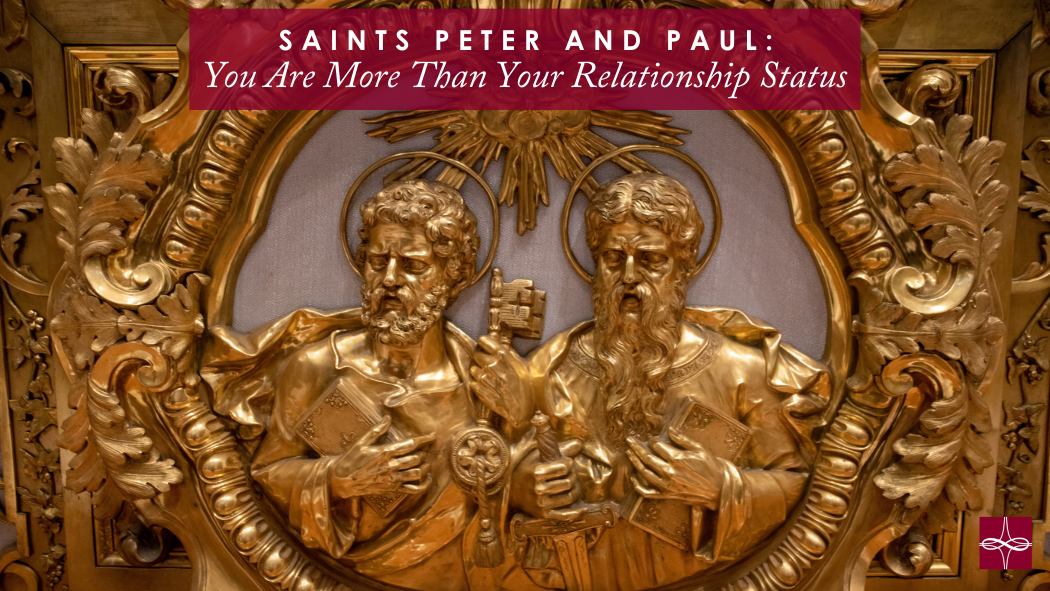
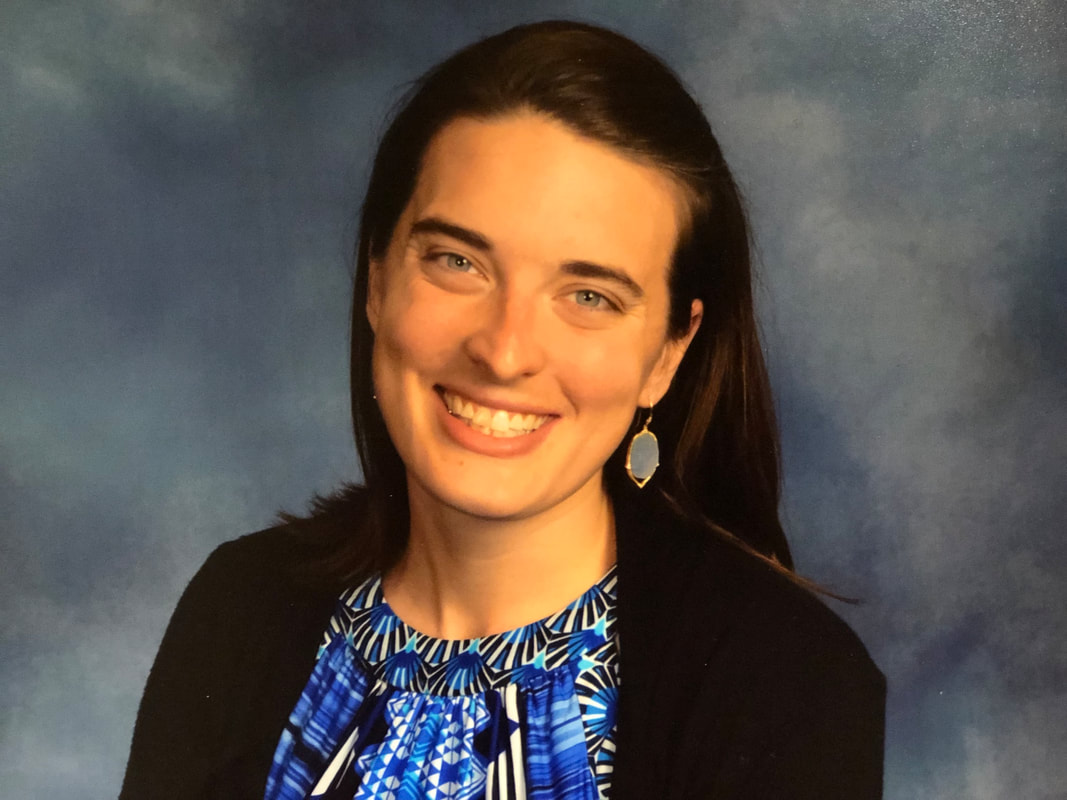
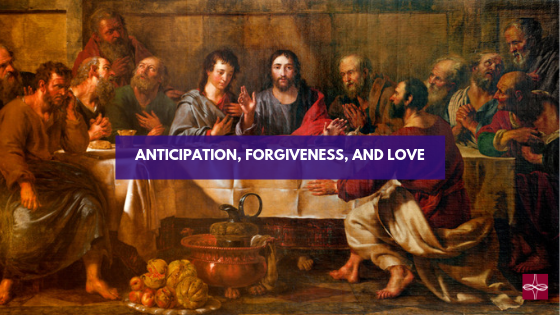

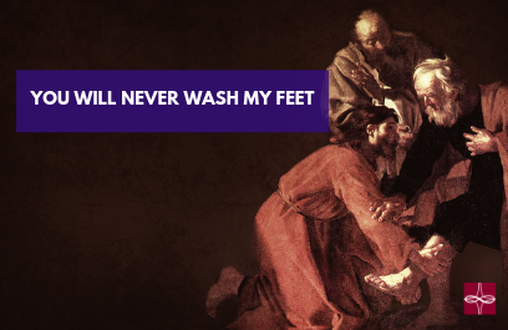

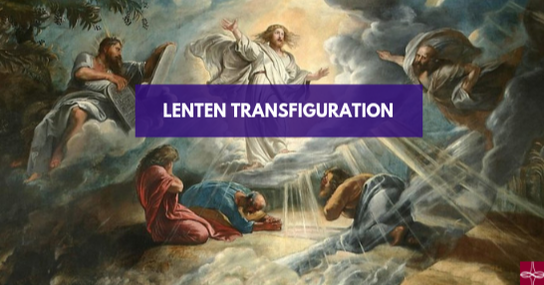

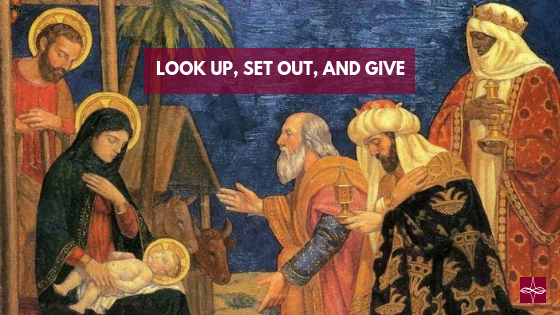

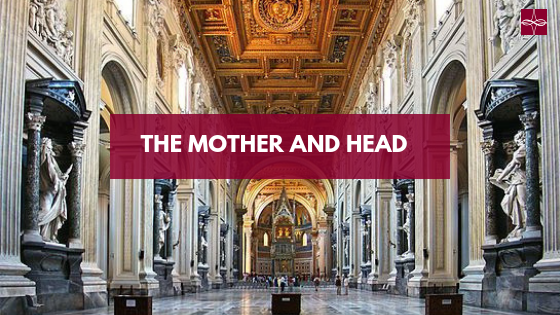
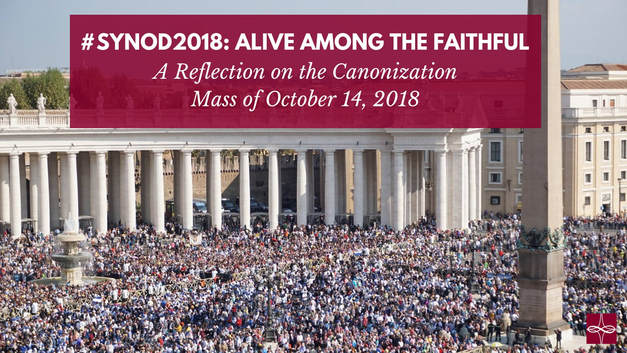
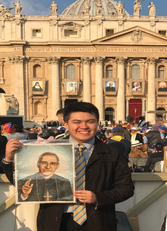
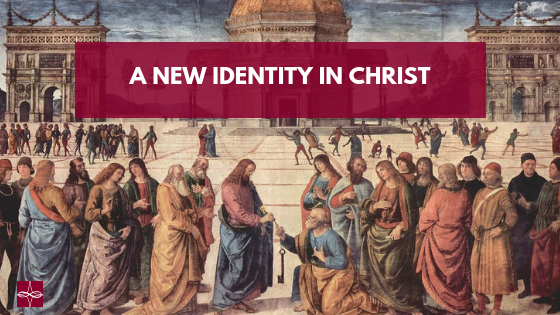

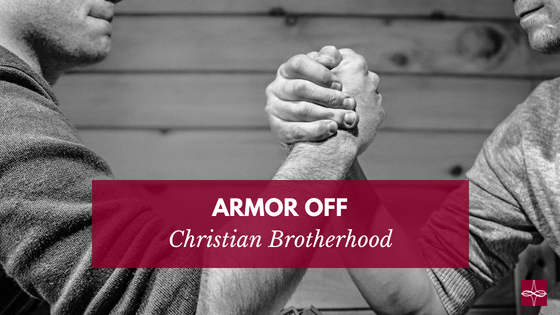

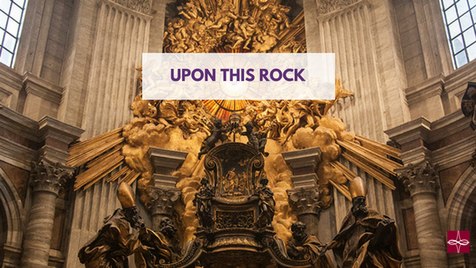

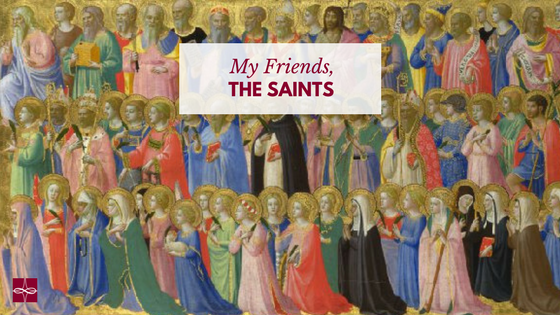

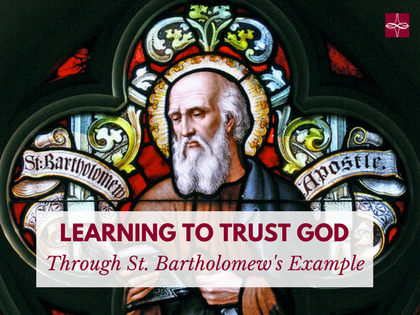

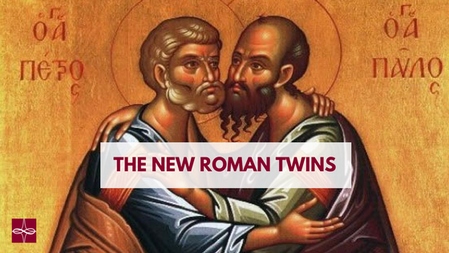

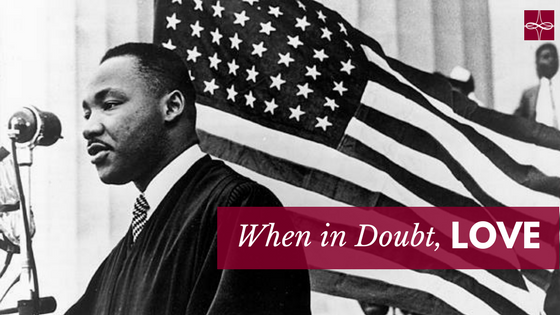



 RSS Feed
RSS Feed